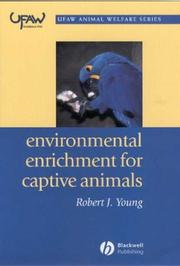| Listing 1 - 3 of 3 |
Sort by
|
Book
ISBN: 9052403767 Year: 1996 Publisher: Antwerpen ; Baarn Hadewijch
Abstract | Keywords | Export | Availability | Bookmark
 Loading...
Loading...Choose an application
- Reference Manager
- EndNote
- RefWorks (Direct export to RefWorks)
dierenrechten --- Animal ethology and ecology. Sociobiology --- Legal theory and methods. Philosophy of law --- Belgique --- België --- Burgerlijk recht --- Dierkunde --- Droit civil --- Zoologie --- Animal rights --- -Animal rights activists --- Animal rights activists --- -Animal rights movement --- Animal rights movement --- -Animal welfare --- Animal welfare --- -dierenbescherming --- 351.765 <493> --- 343.58 <493> --- #A9610A --- belangengroepen --- democratie --- ethiek --- politiek, binnenland --- Animal liberation --- Animals' rights --- Rights of animals --- Activists, Animal rights --- Advocates, Animal rights --- Animal rights advocates --- Reformers --- Abuse of animals --- Animal cruelty --- Animals --- Animals, Cruelty to --- Animals, Protection of --- Animals, Treatment of --- Cruelty to animals --- Humane treatment of animals --- Kindness to animals --- Mistreatment of animals --- Neglect of animals --- Prevention of cruelty to animals --- Protection of animals --- Treatment of animals --- Welfare, Animal --- Social movements --- Moral and ethical aspects --- Abuse of --- Social aspects --- Animal rights activists. --- Animal rights movement. --- Animal rights. --- Animal welfare. --- dierenbescherming

ISBN: 9780632064076 0632064072 Year: 2003 Publisher: Oxford : Blackwell Science,
Abstract | Keywords | Export | Availability | Bookmark
 Loading...
Loading...Choose an application
- Reference Manager
- EndNote
- RefWorks (Direct export to RefWorks)
Environmental enrichment: an historical perspective -- Why bother with environmental enrichment? -- Does environment enrichment work? -- Proactive v. reactive use of environmental enrichment -- Designing an enrichment device -- The enrichment programme -- Enrichment for different categories of animals -- Food and foraging enrichment -- Social environmental enrichment -- Housing -- Furniture, toys and other objects -- Designing and analysing enrichment studies -- Information sources about environmental enrichment.
Environmental enrichment (Animal culture) --- Captive wild animals --- Animaux sauvages en captivité --- Animaux sauvages en captivité --- Animal welfare --- Domestic animals --- Animaux --- Animaux domestiques --- Protection --- 179.3 --- Abuse of animals --- Animal cruelty --- Animals --- Animals, Cruelty to --- Animals, Protection of --- Animals, Treatment of --- Cruelty to animals --- Humane treatment of animals --- Kindness to animals --- Mistreatment of animals --- Neglect of animals --- Prevention of cruelty to animals --- Protection of animals --- Treatment of animals --- Welfare, Animal --- Enrichment, Environmental (Animal culture) --- Animal culture --- Abuse of --- Social aspects --- Animal Rights. --- Animal Welfare. --- Animal Rights --- Animal Welfare
Book
ISBN: 9780199673018 0199673012 Year: 2013 Publisher: Oxford ; New York : Oxford University Press,
Abstract | Keywords | Export | Availability | Bookmark
 Loading...
Loading...Choose an application
- Reference Manager
- EndNote
- RefWorks (Direct export to RefWorks)
Zoopolis offers a new agenda for the theory and practice of animal rights. Most animal rights theory focuses on the intrinsic capacities or interests of animals, and the moral status and moral rights that these intrinsic characteristics give rise to. Zoopolis shifts the debate from the real of moral theory and applied ethics to the realm of political theory, focusing on the relational obligations that arise from the varied ways that animals relate to human societies and institutions. Building on recent developments in the political theory of group-differentiated citizenship, Zoopolis introduces us to the genuine "political animal." It argues that different types of animals stand in different relationships to human political communities. Domesticated animals should be seen as full members of human-animal mixed communities, participating in the cooperative project of shared citizenship. Wilderness animals, by contrast, form their own sovereign communities entitled to protection against colonization, invasion, domination, and other threats to self-determination. "Liminal" animals who are wild but live in the midst of human settlement (such as crows or raccoons) should be seen as "denizens", residents of our societies, but not fully included in rights and responsibilities of citizenship. To all of these animals we owe respect for their basic inviolable rights, but we inevitably and appropriately have very different relations with them, with different types of obligations. Humans and animals are inextricably bound in a complex web of relationships, and Zoopolis offers an original and profoundly affirmative vision of how to ground this complex web of relations on principles of justice and compassion.
Animal rights. --- Human-animal relationships --- Animaux --- Relations homme-animal --- Mouvement pour la défense des droits des animaux --- Moral and ethical aspects. --- Droits --- Aspect moral --- Aspect politique --- Animal rights --- Animal-human relationships --- Animal-man relationships --- Animals and humans --- Human beings and animals --- Man-animal relationships --- Relationships, Human-animal --- Animals --- Animal liberation --- Animals' rights --- Rights of animals --- Animal welfare --- Moral and ethical aspects --- Mouvements pour la défense des droits des animaux --- Droits. --- Aspect moral. --- Aspect politique. --- Political philosophy. Social philosophy --- Social ethics --- Human-animal relationships - Moral and ethical aspects --- Mouvements pour la défense des droits des animaux
| Listing 1 - 3 of 3 |
Sort by
|

 Search
Search Feedback
Feedback About
About Help
Help News
News